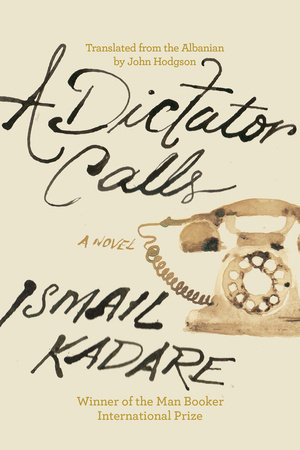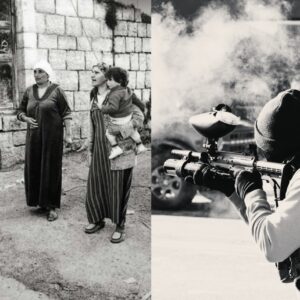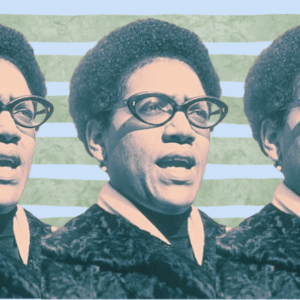The stop is on the right-hand side of the street. Trolleybus number three. Take it as far as Pushkin Square. That’s where the statue is, as you no doubt know. Exegi monumentum, etc. Walk past, with the statue on your right, cross Gorky Street, and Tverskoi Boulevard begins at the crossroads a few steps further on.
Then everything is straightforward. After a minute’s walk, the gate of the Gorky Institute appears on your right. It’s obvious, you understand. Even if you don’t want to see this monument, there it is . . . Why shouldn’t I want to see it? Who knows. Whenever we think that we want something, in fact we don’t.
No, I’ve made such an effort to get this far. The trolleybuses whinny like wild horses. Pot-holes everywhere. Then at last I glimpse the famous statue. Walk past, with the statue on your right, they’d said.
‘What statue, young man? You’re talking nonsense. There are no statues like that around here . . . What do you mean?’
‘The statue of Pushkin. I walked past it so often.’
‘Your eyes deceived you. There’s never been anything like that here.’
‘But everyone in the world knows about it: exegi monumentum . . .’
‘As you said, I raised a monument not made by human hands – a nerukotvorniy monument. You fell into the trap yourself. A monument raised not by human hands, but by the spirit, as the poet says. A statue that nobody can see, apart from the insane, like you students at the Gorky Institute.’
‘We weren’t insane.’
‘You were worse. Each of you dreamed of toppling each other’s statue, in order to raise your own.’
‘Like the Pasternak rally? No, that was different.’
‘Were you at that rally? Did you howl against him?’
‘Never.’
‘Then what did you do while the others howled?’
‘I looked at a girl in tears. I thought she was his niece.’
‘And you’ve come back, after so many years, to see this place again? Does it seem to you that the rally is still going on?’
‘Perhaps. In fact, it probably is. You can pinpoint the assembly point from the distant shouts, more easily than from the sign by the Institute’s gate. It’s the same incessant noise in Moscow as one hears in Tirana.’
*
This nightmare came back again and again for years, in the most bizarre forms. The groaning of the trolleybuses over the bumps and potholes in the street. The monument under threat. The tears, and sweet Moscow.
I was so sure I would write about it that at times it was as if I’d already done so, or that the supply of words I needed was ready and waiting, stockpiled in the proper corner.
The ever more frequent dream journeys were a sure sign that the time was ripe. The dreams became more confused and illogical. Trolleybus number three refused to set off, and they had to strike it with a whip. How long had this been going on? Many things had changed in the years since I’d left Moscow, but surely they hadn’t got to the point of whipping trolleybuses.
In Tirana the official campaign for the arts to get to grips with life continued. Writers, almost without exception, admitted to falling short, especially when it came to comprehending the lives of workers in factories, let alone on cooperative farms. Meanwhile, without telling anybody, I’d started my novel about Moscow, but I wasn’t at all sure that I’d get to the end, just as Moscow itself was now out of reach. After the breakdown of diplomatic relations, there was no hope of taking a trip there. I would fall asleep and long to find myself back once more. But I felt that less and less often. Moreover, in my dreams the chaos of the city grew more intense, and I couldn’t tell whether this chaos was an obstacle or was helping me in what I wanted to do.
As it turned out, it helped me, and in contrast to the realities of factories and farms, Moscow required a sense of distance.
In one of the dreams, after I’d crossed Pushkin Square almost on my knees, I found most of the students at the rally. I knew that my own name would be on the placards, but still I was surprised to see it. Then, increasingly clearly, I heard the shouting against me.
Among the students were several of my friends from the Gorky Institute. Petros Anteos didn’t know where to look, while Stulpans, a Latvian and my closest friend, held his head in his hands.
‘The big boss in Tirana telephoned you,’ shouted an angry Belorussian. ‘That Stalin of yours, I’ve forgotten his name.’
I nodded in confirmation, but he didn’t calm down.
How many versions of the telephone call are there?
I couldn’t remember. I wanted to tell him probably three or four, no more. But I didn’t manage to because I woke up.
*
Enver Hoxha’s phone call had indeed taken place some time before this dream. It was midday, and I was at the Writers’ Union as usual when the deputy chief editor of the newspaper Drita held out the receiver and said that someone was asking for me.
‘I am Haxhi Kroi,’ the voice said. ‘Comrade Enver wants to speak with you.’
I didn’t manage to say anything, except ‘thank you’! The leader congratulated me on a poem that had been recently published in the newspaper. I said ‘thank you’ again. He said that he’d liked it a lot. I signalled to the people round me to keep quiet, but I was in no state to say anything else apart from a third ‘thank you’.
‘What are all these thank-yous, one after another?’ asked one of the editors. ‘Since when so polite?’
I didn’t know how to warn him, so I merely made another ambiguous hand signal.‘That was Enver Hoxha.’ Those were the only words I managed to utter after the call ended.
‘Really? How come? The man himself?’
‘Yes,’ I replied.
‘What for? What did he say to you, and you – why didn’t you say anything?’
I said I didn’t know. I’d been taken aback.
I told him about the congratulations, and he said again what a shame it was I hadn’t replied properly. But someone else said I had done all right, and that moments like that leave you tongue-tied.
I spoke to the Belorussian in my dream. ‘Idiot,’ I said.
During the campaign against his reputation, Pasternak’s phone conversation with Stalin was cited as one of the principal ways the poet had been shamed, especially the part where Stalin asked him what he thought of Mandelstam. There were five or six versions of the phone call in public circulation, but people spoke of many more, each worse than the last.
‘Idiot,’ I muttered, insulting the Belorussian again, but thinking more of myself, for conjuring such dreams.
Yet still I racked my brains, wondering if there could have been even more versions:
Comrade Enver wants to speak with you . . . What do you think of Mandelstam? That is of Lasgush Poradeci, or Pasko or Marko, who . . . prison. Although they have just come out of prison, they might go back . . . Or more simply, what about Agolli, Qiriazi, Arapi . . . who . . . prison . . . although they haven’t been to prison yet. Or to get to the point, what do you think of yourself ?
I would have found this last question about myself easier than the others. Like everyone else, my intention was to write about real life . . . apart from an unpublished novella, which might have caused Comrade X a problem if it came to his attention, about student life in Moscow, although most of the events take place far away in a writers’ holiday home at a place called Dubulti on the Baltic coast.
What is your opinion of Pasternak?
This question felt surprising, although it was nothing of the sort. In truth, it was the one question I didn’t want to be asked.
Pasternak? I never had anything to do with him. Except one day I saw him from a distance in Peredelkino. And if he’s mentioned in the course of the novella, this is in connection with the campaign against him, part of the background against which the events take place. There was a relative of his at the Gorky Institute, a woman in the second year, whose eyes were always full of tears, for reasons that can be imagined.
I was ready to go into unnecessary detail, if only to avoid the next question, which seemed to me even worse, about the Nobel Prize.
Most of the students, as they howled in chorus to denounce the prize, dreamed of nothing else but winning it. However, the question wasn’t about them, but about myself. Should I say that the Nobel Prize had never crossed my mind? Of course not. I’d thought of it often, but especially years later when it was whispered that I myself . . . might be on that list.
So to me this uproar against Pasternak included a strange and entirely different element. As if it were not only about him but about someone else, perhaps even myself. This produced in me a severe but intoxicating anxiety. Imagine standing alone in front of your country, which insults you and yells in your face with hatred and love at the same time. Give back that cursed prize, scream the students, pregnant women, the miners of Tepelenë. But you, a capricious waverer, like Hamlet in his dilemma, can’t decide whether to take it or not to take it. Then the father of literature Sterjo Spasse, just in the way that Korney Chukovsky visited Pasternak in his dacha, comes to you and says, you are like a son to me, I’m here today, but I’ll be gone tomorrow, for the sake of your memories of Moscow, turn down that poisoned chalice before it’s too late!
__________________________________
Excerpted from A Dictator Calls (Counterpoint Press, 2023) by Ismail Kadare. Used with permission from Librairie Arthème Fayard. Copyright © 2022, Librairie Arthème Fayard. All rights reserved. Translated from the Albanian by John Hodgson, Translation copyright © 2023 by John Hodgson.













